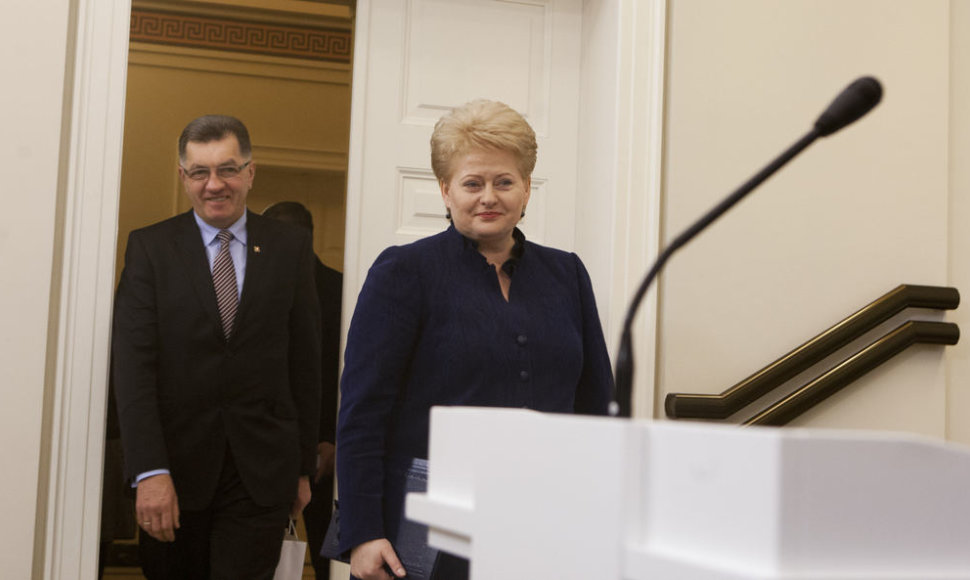According to the poll carried out by public opinion and market research company Vilmorus on April 10-14, 21.5 percent of those surveyed said in April that Grybauskaitė was the best politician representing their interests and 18 percent named the prime minister, up from 21.9 and 21.2 percent, respectively, in March.
Leaders of the Labor Party and the Order and Justice party, Viktor Uspaskich and Rolandas Paksas, lag behind the president and prime minister considerably with 5 and 2.7 percent, respectively. Their popularity dropped in a month from 5.3 and 4,8 percent, respectively.
The two are followed by Valentinas Mazuronis of the ruling Order and Justice party (2.6 percent), leader of the opposition Liberal Movement Eligijus Masiulis (2.4 percent), one of the leaders of the Homeland Union–Lithuanian Christian Democrats Irena Degutienė (2.2 percent), and Social Democratic Minister of Health Vytenis Andriukaitis (2.1 percent).
In a separate rating, Butkevičius scored better than Grybauskaitė. Asked which politician they favored, 66.4 percent named the prime minister and 64.4 percent picked the president.
Former Prime Minister Kubilius and Valdemar Tomaševski, leader of the Electoral Action of Poles in Lithuania, were named the least favored politicians in Lithuania.
Social democrats lead popularity polls
The ruling Social Democratic Party remains the most popular party in Lithuania, with its popularity having grown even more over the last month.
According to the survey by public opinion and market research company Vilmorus for the Lietuvos Rytas daily, 30.1 percent said in April they would vote for the Social Democrats if general elections were held on the upcoming Sunday, compared to 29.9 percent last month.
The ruling Labor Party saw its popularity drop to 12.7 percent in April from 13.6 percent in March.
It was followed by the opposition Homeland Union–Lithuanian Christian Democrats, whose rating was up to 9.3 percent from 8.8 percent, and the ruling Order and Justice party. 7 percent would vote for the latter party, compared to 7.9 percent in March.
Popularity of the opposition Liberal Movement grew to 5.8 percent in April from 4.9 percent in March.
Other parties failed to exceed the 5-percent threshold needed to get into parliament.
11.9 percent of those surveyed said they would not vote in general elections and 13.7 percent were undecided which party to vote for.
Institutions losing trust
Trust in institutions in Lithuania has gone down slightly over one month, the survey indicates.
According to the Vilmorus survey, out of 18 public institutions, only firefighters, the army, and banks saw public trust in them rise.
Firefighters traditionally had the highest level of public trust (91.2 percent) in April, compared to 89.1 percent in March.
The army came in second, with its popularity rating up by 0,4 percent to 56,7 percent.
Public trust in banks rose by 1.4 percent, to 21 percent.
The number of people who distrust banks dropped to 49 percent from 54,7 percent.












